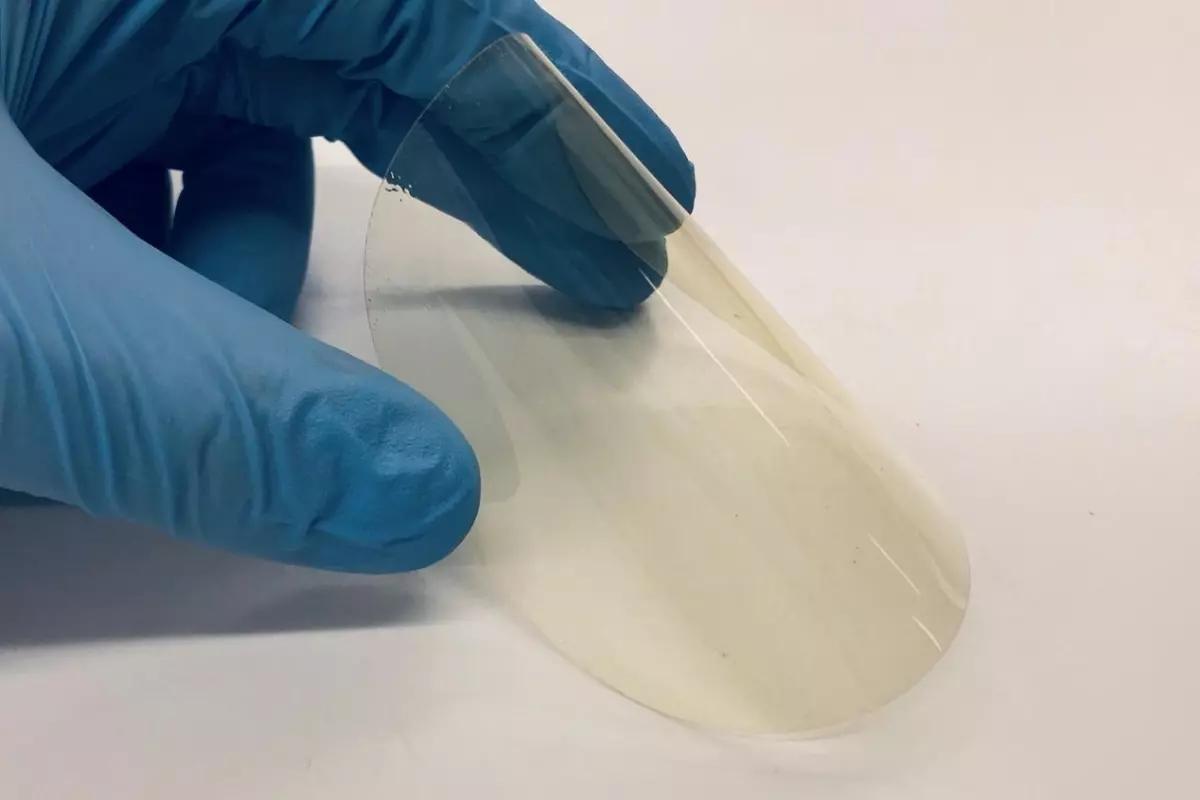Plant-based bioplastics are already a more eco-friendly alternative to their petroleum-based counterparts. Now, scientists have created a clear bioplastic film that not only blocks harmful ultraviolet radiation, but that is also more airtight than traditional plastics.
Created by a team at Finland's University of Oulu, the transparent "copolymer" film is made entirely of two organic compounds: hydroxymethylfurfural (HMF) and furfural. These are byproducts of the refining of cellulose and hemicellulose – cellulose makes up most of the cell walls of plants, with structurally-simpler hemicellulose also being present in those walls.
By chemically linking the HMF and furfural, the researchers were able to combine the structural qualities of both.
The resulting bioplastic blocks most incoming UV rays, plus it was found to be three to four times more airtight than standard PET (polyethylene terephthalate) plastic film. This means that among other possible applications, it could be particularly well-suited to use as a wrap that protects food or other items from the harmful effects of sunlight – while also keeping those items fresh.
Additionally, as is the case with most other bioplastics, the new material wouldn't require the mining and refining of oil, and it would biodegrade once disposed of.
A paper on the research was recently published in the journal Macromolecules and Biomacromolecules.
Source: University of Oulu




